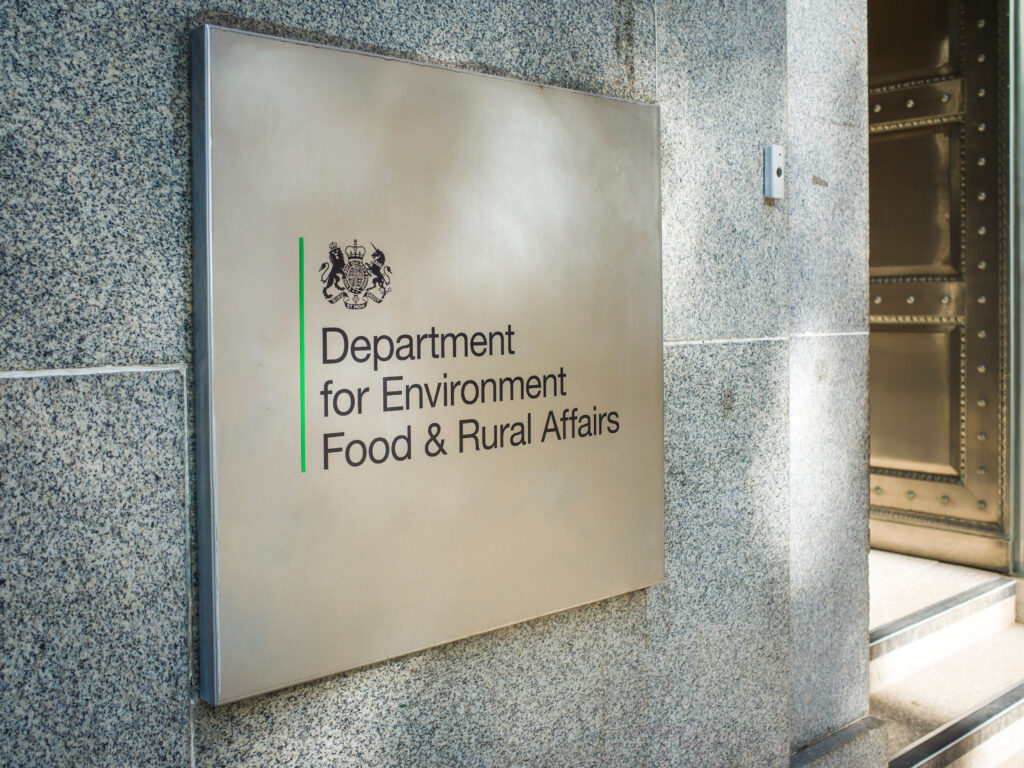Defra faced criticism over the manner in which it consulted on its recently-launched Waste Prevention Programme for England at an event in London yesterday (January 21).
Speaking at the Westminster Energy, Environment and Transport Forum, Karen Lepper deputy director of waste strategy and management at Defra reiterated the Departments stance that waste prevention targets can be distorting and that the governments role in waste is to take actions only where it can.
However, she faced criticism over the Departments consultation on the Waste Prevention Programme, a final version of which was published in December 2013 (see letsrecycle.com story) following a consultation in August 2013.
Addressing Ms Lepper, Peter Laybourn chief executive of consulting firm International Synergies suggested that responses submitted by the firm as part of the consultation had been ignored as the final Programme did not include enough industry evidence.
And, professor of applied environmental science at University of Southampton, Ian Williams, added that as his previous responses to consultations had not been acknowledged, he had not responded to the Waste Prevention consultation as he thought it would be a waste of time.
Ms Lepper responded: We werent able to include everything in our programme. We had a huge number of responses. But this doesnt mean that it wont be taken forward in the future.
Reuse
Also speaking about the Waste Prevention Programme earlier in the day, several panellists at the event suggested that the economic case for reusing products and materials needed to be made to the private and third sector before targets should be set.
‘We werent able to include everything in our programme. We had a huge number of responses. But this doesnt mean that it wont be taken forward in the future’
Karen Lepper, deputy director of waste strategy and management at Defra
Helen Middleton, market development manager at the Furniture Reuse Network (FRN), asked the panel what the implications were of the lack of targets for reuse in the Programme.
In response, panellist Wayne Hubbard chief operating officer of the London Waste and Recycling Board (LWARB) said: I am not convinced that the lack of targets is a bad thing.
He said that the priority was to look at financing reuse businesses and infrastructure in England, adding: I think there is an economic case and we have to go out and make that case first, which takes some time.
Fellow panellist David Fell, director of consultancy Brook Lyndhurst, agreed: I dont think targets are the answer I have to say.
And, director of external affairs at Viridor Waste Management, Dan Cooke, commented that he didnt think that the lack of targets is necessarily a good or bad thing, adding that such targets were unlikely to be set in the first place anyway as the government doesnt like the unintended consequences of targets.
Mr Cooke also felt that both the environmental and economic benefits of reuse needed to be more widely understood among the public before targets could be set, suggesting that recycling still means the same as waste prevention to the public.
Public engagement
Also on the panel was Eunomia senior consultant Chris Sherrington, who said one of the major challenges is public engagement, as the notion of waste prevention didn’t excite people, adding: I dont think the Waste Prevention Programme has changed that.
Dr Sherrington said that the Programme needed “iconic interventions” that people would engage with, “possibly for reasons beyond waste prevention”.
He then highlighted a number of measures he thought should have been included in Englands Waste Prevention Programme, such as a food waste hierarchy, local authority reuse targets, pay-as-you-throw schemes and a levy on all single-use carrier bags including paper and biodegradable bags.
Dr Sherrington also suggested that introducing a network of public water fountains would help cut plastic bottle waste.
He said: These are all things that even if you dont put them in place as waste prevention measures, people would see them as a good thing.
AD
Related Links
Elsewhere, there were calls for greater investment in sub-2 million anaerobic digestion (AD) facilities, with criticism that too much Green Investment Bank funding was instead going towards large-scale energy-from-waste (EfW) plants.
Speaking at the event, Richard Gueterbock, marketing director of on-site AD design firm Clearfleau, said: We have to find a way of incentivising farmers to deliver these kind of solutions. Feedstock should be digested close to where it is produced because then it is easier to recover the energy. We need to get the infrastructure delivering not just at the larger scale but at the microscale.











Subscribe for free